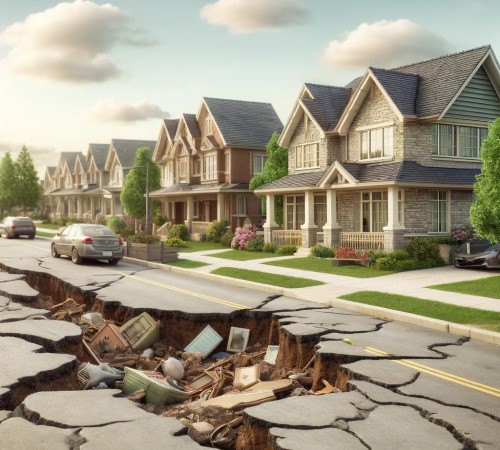Swarm of Earthquakes Strikes Ontario: What You Need to Know

Swarm of Earthquakes Strikes Ontario: What You Need to Know
A recent series of earthquakes rattled Ontario, causing concern among residents and experts alike. According to the U.S. Geological Survey (USGS), this swarm of seismic activity has drawn attention due to its frequency and unusual location. Here’s everything you need to know about these earthquakes, their causes, and what to expect moving forward.
What Happened in Ontario?
Over the past few days, Ontario experienced a series of small to moderate earthquakes. While earthquakes are not entirely unheard of in this region, the frequency and clustering of these quakes are unusual. The strongest quake registered a magnitude of 4.0, with several smaller aftershocks following in quick succession. Residents reported feeling the ground shake, with some describing it as a loud rumble followed by a sudden jolt.
Why Is Ontario Experiencing Earthquakes?
Ontario is not typically associated with major seismic activity, unlike more earthquake-prone regions like California. However, earthquakes can occur anywhere, and Ontario is no exception. The region sits on the edge of the North American plate, and stress can build up over time, leading to sudden releases in the form of earthquakes.
The recent swarm of quakes is likely due to natural tectonic movements, although scientists are still studying the exact causes. It’s worth noting that human activities, such as mining or fracking, can sometimes trigger small earthquakes, but there is currently no evidence linking these events to such activities in Ontario.
USGS and Experts Weigh In
The USGS has been closely monitoring the swarm and has assured the public that while the quakes are noticeable, they are not likely to cause significant damage. Seismologists emphasize that swarms like this are not necessarily indicative of a larger, more destructive earthquake to come. However, they do serve as a reminder that earthquakes can happen in unexpected places, and it’s always wise to be prepared.
Dr. John Adams, a seismologist with the USGS, noted, “These types of swarms are not uncommon in areas like Ontario, where the geology is complex. While they can be startling, they’re often harmless and don’t usually lead to anything more severe.”
What Should Residents Do?
If you live in Ontario or nearby areas, it’s important to stay informed and be prepared for potential aftershocks. Here are some tips on how to stay safe during an earthquake:
- Drop, Cover, and Hold On: If you feel the ground shaking, drop to your hands and knees, take cover under a sturdy piece of furniture, and hold on until the shaking stops.
- Have an Emergency Kit Ready: Make sure you have an emergency kit with water, food, a flashlight, and other essentials. It’s always good to be prepared, even for minor disruptions.
- Stay Informed: Keep up with updates from the USGS and local authorities. Earthquake information is constantly being updated, so staying informed can help you respond appropriately.
- Check Your Home: After an earthquake, check your home for any signs of damage, such as cracks in the walls or foundation. If you notice anything concerning, consider consulting a professional.
The Bigger Picture: Understanding Earthquake Swarms
Earthquake swarms are clusters of seismic events that occur in a specific area over a short period. Unlike a traditional earthquake sequence that involves a mainshock followed by aftershocks, swarms consist of many earthquakes of similar magnitudes. Swarms can last for days, weeks, or even months, and their causes can vary from tectonic movements to volcanic activity or even man-made influences.
In Ontario’s case, the swarm appears to be a natural tectonic event. While it’s unusual for the area, it’s not entirely unprecedented. Understanding that these quakes are a natural part of Earth’s dynamic processes can help ease concerns.
Final Thoughts
While the recent swarm of earthquakes in Ontario has been unsettling, experts assure that the risk of a larger, catastrophic earthquake remains low. These events serve as an important reminder of the unpredictable nature of our planet. Staying informed, prepared, and calm is the best way to navigate through these natural occurrences.
As the USGS continues to monitor the situation, residents can take simple steps to ensure their safety and peace of mind. Earthquakes may be unpredictable, but being prepared can make all the difference.




